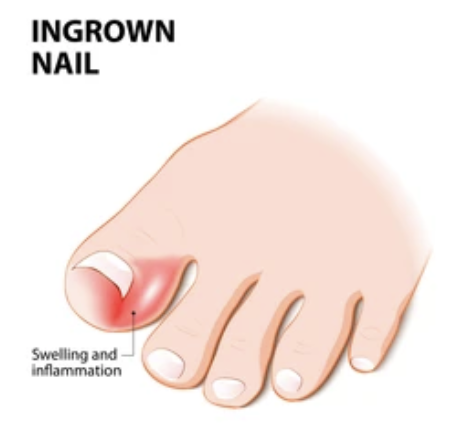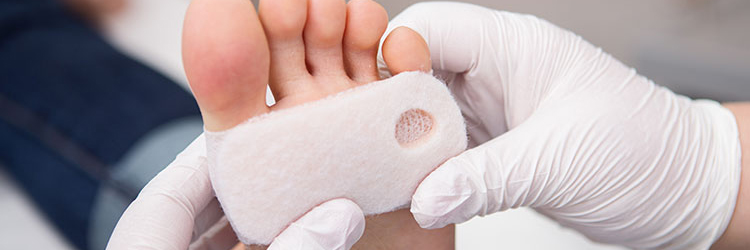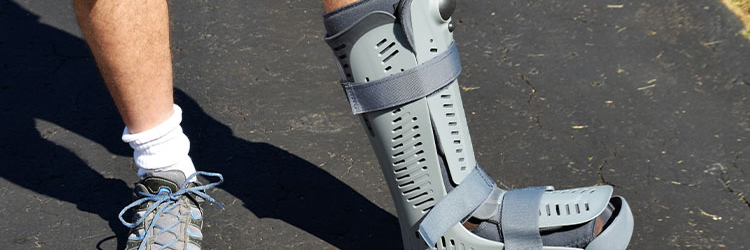What is an Ingrown Nail?
An ingrown nail, also known as onychocryptosis, occurs when the edge of a toenail grows into the skin surrounding the nail. This can cause pain, redness, swelling, and infection. Ingrown nails most commonly occur on the big toe, but they can also occur on other toes.
Ingrown nails can be caused by a variety of factors, including improper trimming, tight shoes, injury, or hereditary factors. People with curved or thick nails may also be more prone to ingrown nails. If left untreated, ingrown nails can become infected and lead to more serious complications.

What are treatment options for ingrown nails?
Treatment options for ingrown nails may include:
Soaking the affected foot in warm water with Epsom salts for 15-20 minutes, several times a day to reduce pain and inflammation.
Proper nail trimming techniques: Trim the toenails straight across, avoiding rounding the corners, and cut them to the appropriate length. Visit us at PS Foot and Ankle if you are a diabetic, immunocompromised or have poor circulation, we can appropriately, hygienically and safely trim/debride your nails to avoid any possible ulceration or infection.
Wearing open-toed shoes or sandals to reduce pressure on the affected area.
Pain relievers: Over-the-counter pain relievers such as ibuprofen or acetaminophen may help relieve pain and inflammation however if the nail is very ingrown and inflamed this condition will continue to linger leading to possible infection if not quickly addressed. The offending ingrown nail must be removed for appropriate relief.
If the nail is infected or causing significant pain, make an appointment at PS Foot and Ankle to remove the nail or a portion of the nail. This may be done under local anesthesia to reduce discomfort.
If you suspect you have an ingrown nail, particularly if it is causing significant pain or signs of infection, such as redness, swelling, and purulent drainage with associated systemic symptoms of fever/nausea/vomiting/dizziness, seek immediate medical attention as you may have a blood infection. Routinely visiting your podiatrist and taking care of your foot health with appropriate treatments will help prevent this problem.
Call: 732-443-3975






